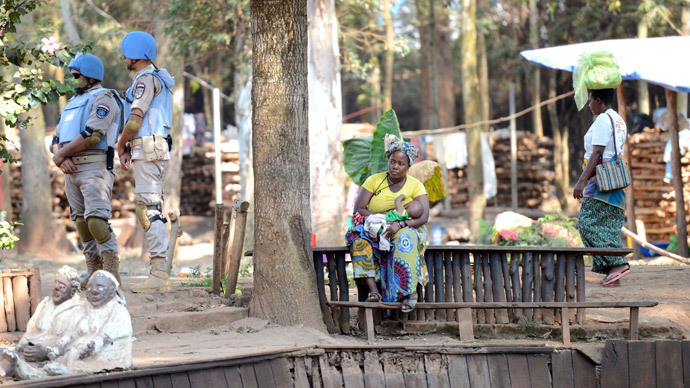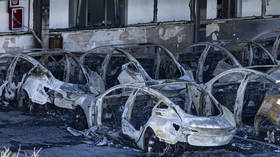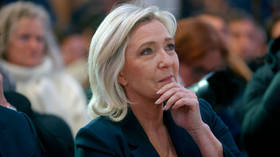UN quietly offers DNA tests to address ‘peacekeeper babies’ & sexual abuse claims

As one of its efforts to address allegations of sexual misconduct by UN keepers worldwide, the organization, has quietly begun running DNA tests to resolve paternity claims by victims who are left raising ‘UN babies,’ according to AP.
Some of the UN’s 125,000 peacekeeping force spanning over 16 locations across the world, have engaged in sexual relations with local populations, or have even been accused of committing sexual crimes. Such acts have result in claims that a child was conceived from a member of the UN force, including non-military staff.
READ MORE: UN peacekeepers sexually abused hundreds of Haitian women & girls – report
Of the dozen paternity claims received last year, four were associated with alleged sexual abuse of a minor, the Associated Press reports. When asked whom the UN personnel may legally have sex with during their deployment, a UN official told the agency “no one,” except each other. Otherwise intercourse could lead to an investigation, the official added.
Back in 2005, a special report by Zeid Raad al-Hussein, now the UN’s human rights chief, urged the organization to conduct DNA tests, should such suspicions arise.
“Assembly should authorize the Secretary-General to require DNA and other tests to establish paternity in appropriate cases so as to ensure that peacekeeping personnel can be obligated to provide child support to so-called peacekeeper babies that they father and abandon,” the report stated.
A decade later, the UN is quietly following up on the advice, and last year started offering a DNA collection protocol and testing kits. A UN cable obtained this month by AP, shows that in January 2014, the peacekeeping office offered its missions “guidance on assistance in instances of paternity claims involving current or former members of peacekeeping missions in terms of DNA testing.”
So far the measure is voluntary. It is up to the discretion of the troop-contributing states to decide how to address paternity claims brought against their troops by alleged victims. But the “most foolproof method,” according to a leaked UN-commissioned report, would be a “DNA data bank for all troops” involved in peacekeeping operations.
According to a UN official, a member state with a peacekeeping contingent is asked if they can conduct DNA testing. If not, the UN is offering to do it. However, as the UN lacks authority to conduct criminal investigations, it has no way to force a country to carryout the procedures. Under the model status-of-forces agreement, military members are subject to the criminal authority of the troop-contributing country concerned.
The question however arises what to do if the paternity test is positive, which can sometimes lead to possible criminal proceedings. “Almost half” of the paternity claims reported since January 2010 – 14 out of 29 – were made by minors who claimed they were raped, according to AP.
The question of compensation for the victims still remains. It is unclear how this issue could be solved, but a decade ago, the report suggested to take money out of peacekeeper's salary.
“If paternity were established, the United Nations could, with a small change in its rules, deduct from the salary of that staff member, or from his final emoluments... the equivalent of one year’s salary of a local employee in the mission area,” Zeid proposed in the report.
This would at least provide some child support to the mother, the report argued.
READ MORE: UN urges CAR child-rape probe after failing to follow up on abuse reports for months
According to Ban Ki-moon’s annual report on combating sexual abuse cases, the number of new allegations of sexual exploitation totaled 79 in 2014, compared with 96 in 2013.
Of the allegations recorded in 2014, 38 were the result of three peacekeeping missions in the Democratic Republic of Congo, South Sudan and Haiti. The remaining 13 allegations were received from Liberia, Mali, Afghanistan, Cyprus, Lebanon and the Ivory Coast. Sexual abuse of minors constituted 25 percent of the cases.
There were 12 paternity claims in total, with seven originating in Mali and five from the Democratic Republic of Congo.
The annual report says the UN is addressing the paternity tests issue by “systematically sharing a DNA collection protocol with concerned member States” and offering to assist gathering DNA samples from mothers and children, to compare them against DNA samples from their alleged fathers.













